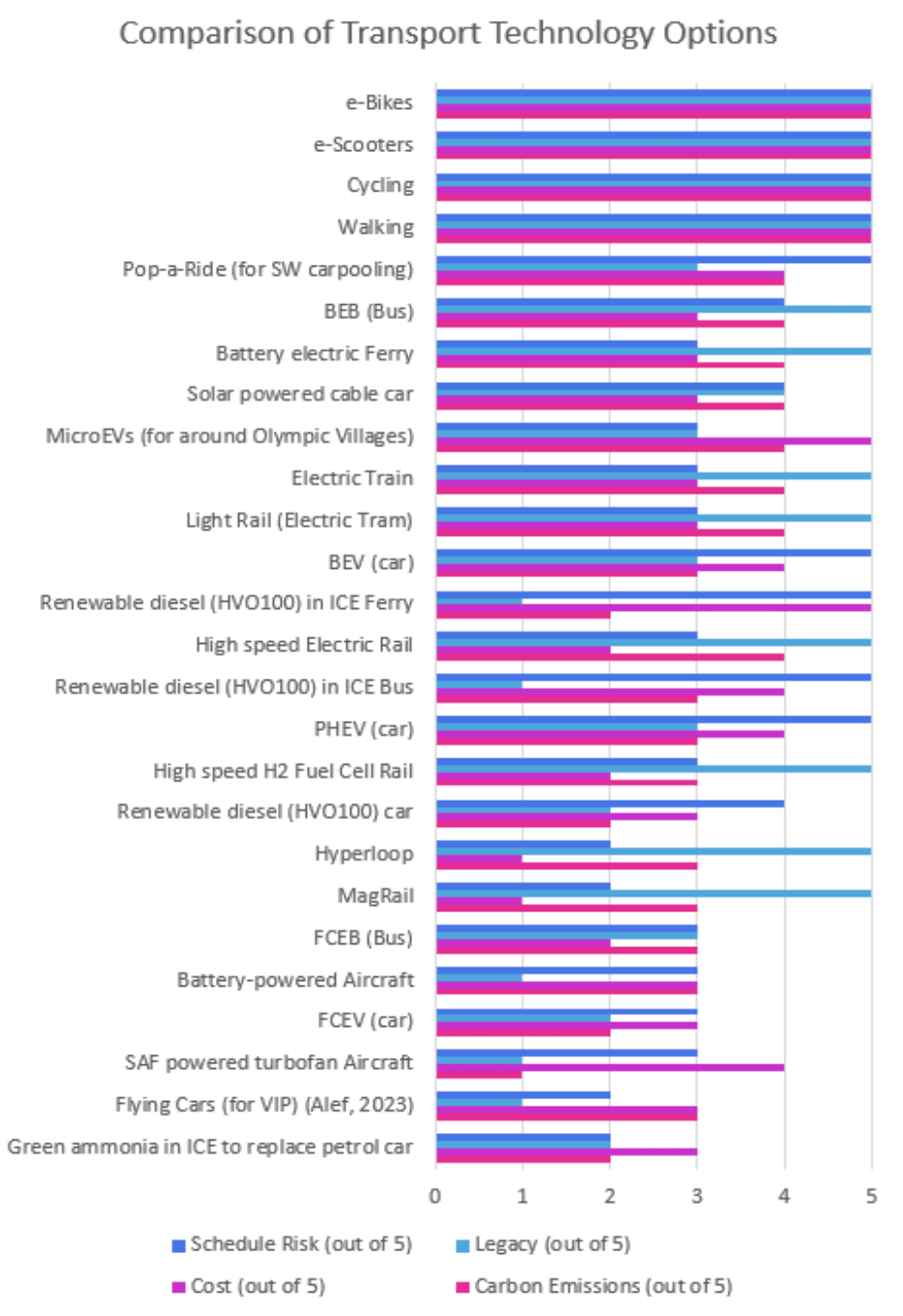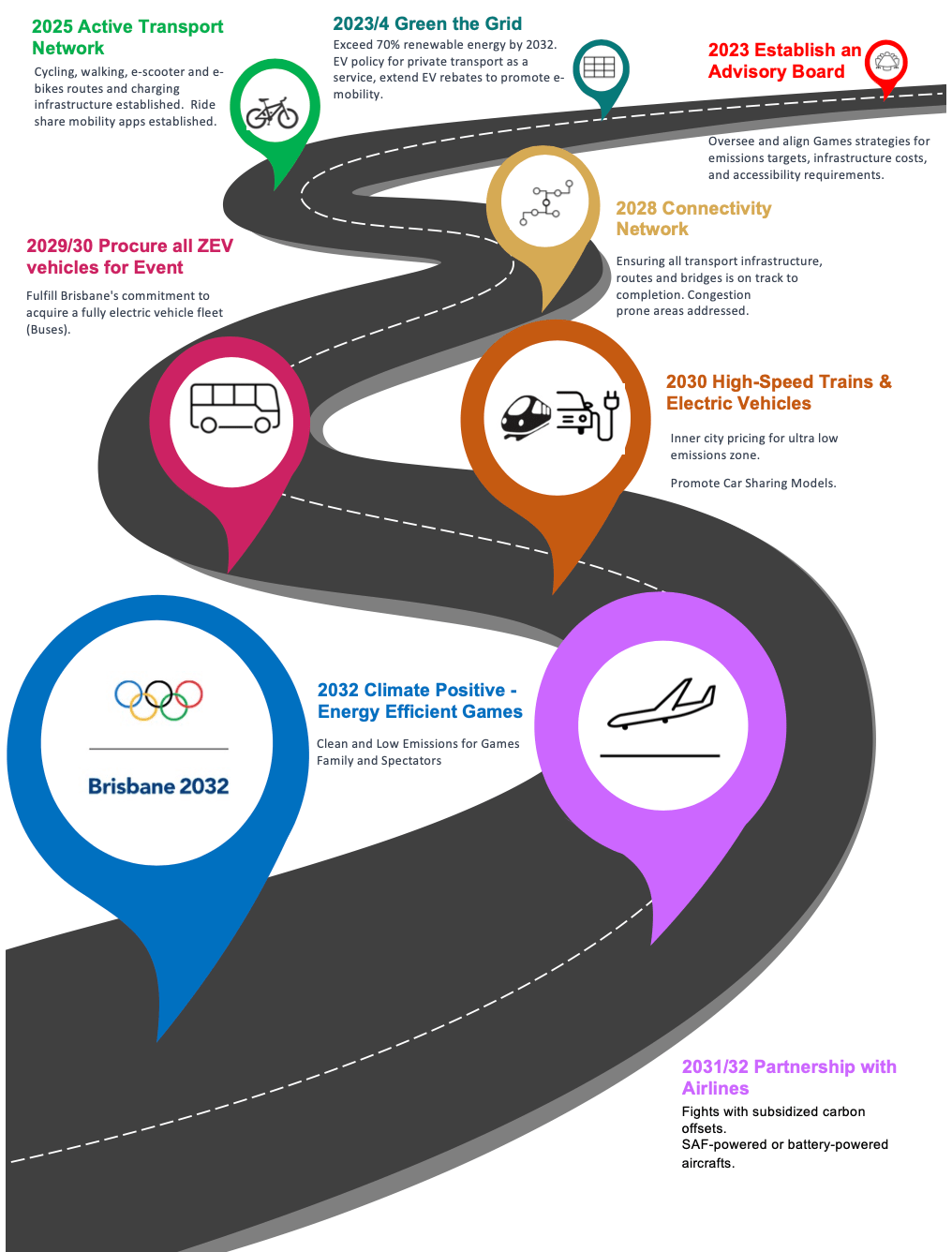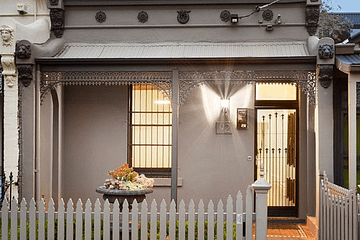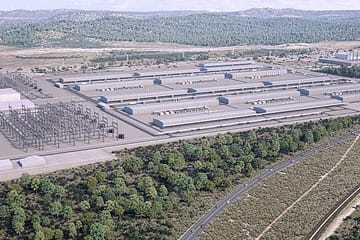As part of my Master of Sustainable Energy, I completed a course in Energy Efficiency and Transport. This course investigates the role that energy efficiency, behaviour change and low carbon solutions can play in changing energy consumption and transport behaviours to reduce greenhouse gas emissions. Topics included energy efficiency and conservation, sustainable energy use, demand management, and behaviour change options across the built environment and transport sectors.
The 2032 Olympic and Paralympic Games, to be hosted in Brisbane, are the first to be contractually obliged to be delivered as ‘Climate Positive’.
As a team of 5, named Sustainable Transport Consulting (STC), our assignment was to develop a detailed Transport Strategy for the Brisbane 2032 Games.
An in-depth critical literature review was conducted of previous and upcoming international sporting events, including the Gold Coast 2018 Commonwealth Games, the Rio Olympics 2016, the London Olympics 2020, and the Paris 2024 Olympics, to identify lessons learnt for Brisbane.
For the Brisbane 2032 Olympic Games, the indicative Master Plan includes operating 32 venues spread across three SEQ zones: Brisbane, Gold Coast, and Sunshine Coast. The transportation plan aims for high sustainability, committing to 100% renewable energy for all Games family vehicles and targeting 90% of spectator journeys to be made with public or active transport. A key challenge for Brisbane is that 90% of population have access to a private vehicle, but only 20% have access to an Olympic Zone via public transport within 30 minutes.
Based upon the current strategies, commitments and transport requirements listed in the Brisbane 2032 feasibility study, a SWOT analysis was undertaken to identify deficiencies, risks, and opportunities. Two key threats are the renewable energy mix of the grid in 2032 and the delivery of the projects listed under the advanced scenario of SEQ Regional Transport Plan.

An assessment of available transport technologies was also conducted resulting in 13 recommendations, with notable recommendations being the promotion of active transport networks and the electrification of public transport and games family transport including buses, ferries and rail.

Furthermore, we conducted an assessment of the total transport carbon emissions assuming that all 13 recommendations were implemented for Brisbane 2032, concluding that residual emissions will be in the order of 15 ktonne CO2-eq which would need to be offset through carbon credits via Climate Active.
Our recommendations to the Queensland Department of Transport and Main Roads were:
- Establish a strategic direction to ensure our transport system supports a consolidated and sustainable Brisbane 2032 Olympic Games.
- Commit to the 2032 Games Budget and fully fund the critical transport infrastructure such as projects under the Advanced Scenario of the SEQ Regional Transport Plan and provide rebates for e-mobility and electric vehicles.
- Deliver supporting green infrastructure to enable the transition to a low carbon transport strategy such as active transport networks, battery electric buses, ferries and charging stations.
- Adopt Smart City strategies to reduce private vehicle use. This includes Travel Demand Management, inner city congestion pricing and car sharing models.
- Partner with technology innovators for a climate positive Games. Some examples of innovative technologies are micro electric vehicles, battery powered aircraft, and flying cars.

Click here to download a copy of my team’s report.


